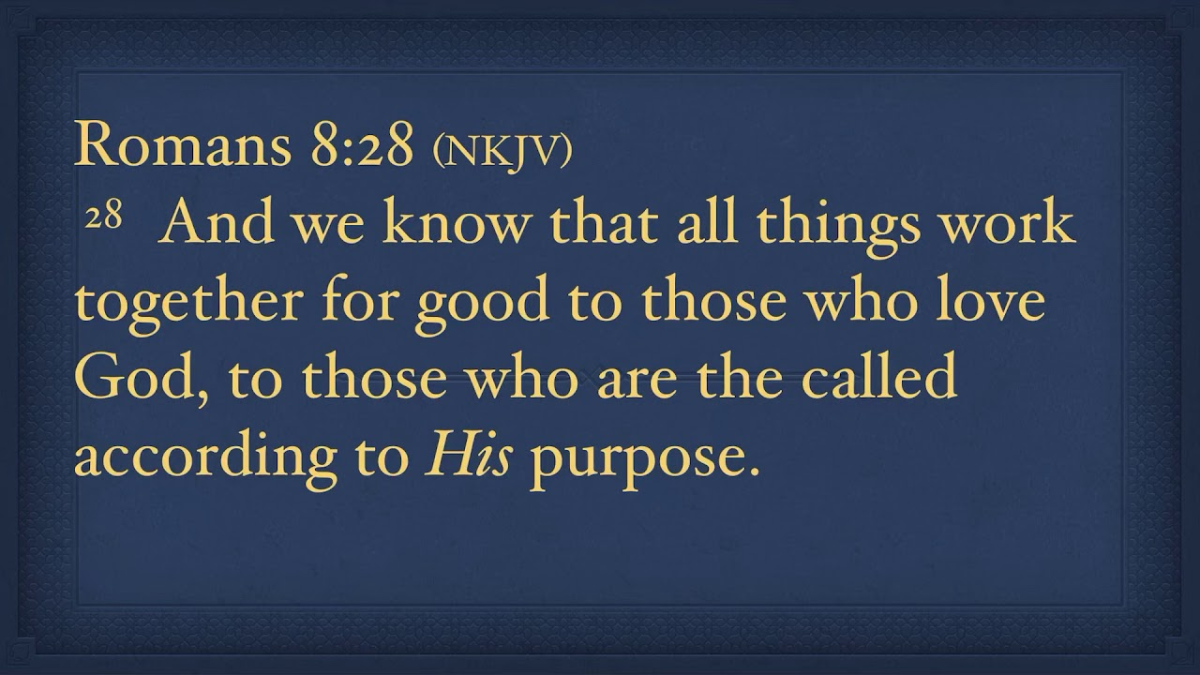“Do not be distressed or angry with yourselves because you sold me here; for God sent me ahead of you to preserve life,” Genesis 45:5
After creating the heavens and the earth (Genesis 1:1), God did not leave the universe to operate independently. He nurtures His creation and consistently intervenes in the lives of His people. God is not a clockmaker who winds up the clock and lets it run until it unwinds. He tenderly cares for His creation, showing deep concern for His people. This ongoing care and concern are known as “God’s Providence.”
The Old Testament, originally in Hebrew, uses the term “Hashgochoh Protis” or “Hashgaha Peratit” for divine providence, meaning “divine supervision of the individual.” In Jewish theology, divine providence means God actively oversees and guides the world, including all aspects of creation.
Divine Providence has three notable aspects:
(1) PRESERVATION
God safeguards the universe with His power, the same power with which He created it. Psalm 36:6 says, “Your righteousness is like the mighty mountains; your judgments are like the great deep. O LORD, you preserve both people and animals.” God’s protective power is manifested through His Son, Christ Jesus, our Lord and Savior. Paul affirms in Colossians 1:17, “He is before all things, and in Him all things hold together.” Christ Jesus, our Lord and Savior, maintains the coherence of even the smallest particles.
(2) PROVISION
God not only protects but also provides for all living things. He established seasons during the creation of the heavens and the earth (Genesis 1:14). He supplied food for humans and animals alike (Genesis 1:29-30). Following the flood, God reaffirmed His covenant with Noah, pledging ongoing provision for the earth, saying, “While the earth remains, seedtime and harvest, cold and heat, summer and winter, day and night shall not cease” (Genesis 8:22). The Psalms highlight God’s provision for all creatures through His tender care (Psalms 104, 145). In Job, God proclaims His nurturing attention to creation by His might (Job 38-41). Jesus underscores God’s tender care for all life, stating, “God nourishes the birds and adorns the flora” (Matthew 6:26-30; 10:29). God caters to our physical and spiritual necessities (John 3:16-17). He exhibits particular concern for His people, caring deeply for them (Psalm 91; Matthew 10:31). Paul reassures the Philippians of God’s commitment to fulfill their needs as per His heavenly wealth in Christ Jesus (Philippians 4:19). John conveys God’s wish for His followers’ well-being and prosperity, expressing, “Beloved, I wish for you to prosper in health and in all things, just as your soul prospers” (3 John 2).
(3) SOVEREIGNTY
In addition to sustaining and meeting the needs of His creation, God also governs the earth. As the Supreme Sovereign, He permits all historical events to occur within this world. In line with His plan of redemption, God occasionally intervenes directly. Yet, to achieve the purpose of history, God voluntarily limits His supreme power and sovereignty. Scripture states, “satan is the god of this present world” (2 Corinthians 4:4), and it is written in 1 John 5:19, “the whole world lies in wickedness” (Luke 13:16; Galatians 1:4; Ephesians 6:12; Hebrews 2:14). This indicates that the world resists God’s sovereignty and rebels against Him, its creator. Humanity is enslaved by Satan. Nonetheless, God’s restraint of His own power is temporary, according to His will. At the designated time, God will vanquish Satan and his forces (Revelation 19-20).
DIVINE PROVIDENCE AND MAN’S SUFFERING
The Scriptures state that God’s care is essential for everyone’s daily life, especially in this flawed and evil world. This should not be just a doctrine, but a realized truth.
(1) Everyone experiences suffering at some point in their lives, leading them to inevitably ask ‘why’. (Job 7:17-21; Psalms 10:1; 22:1; 74:11,12; Jeremiah 14:8,9,19) Such experiences, resulting from evil, pose challenges to God’s plan.
(2) God permits the repercussions of Adam and Eve’s sin to unfold. For instance, Joseph faced numerous trials due to his brothers’ jealousy and malice. He was sold into slavery and ended up as a servant to Potiphar in Egypt (Genesis 37, 39). Despite his God-fearing and honest life, Joseph was wrongfully accused and imprisoned (Genesis 39). He spent over two years in jail (Genesis 40:1-41:14). God allows our suffering as a result of others’ actions. Yet, He can transform these adversities into opportunities to accomplish His sovereign plan. As Joseph proclaimed, God turned his brothers’ wrongdoing into a means to preserve their lives (Genesis 45:5; 50:20).
(3) We suffer not only from the wrongdoings of others but also from our own. For instance, acts like immorality and adultery can devastate marriages and family lives. Unrestrained anger directed at others may lead to serious injury or even fatality. During a dispute, it’s possible for one or both individuals to lose their lives. The sin of greed, prompting theft or mismanagement of funds, can lead to incarceration.
(4) Suffering is frequently ascribed to the influence of Satan, considered the god of this world. He executes his malevolent acts by obscuring the vision of non-believers and dominating them (2 Corinthians 4:4; Ephesians 2:1-3). The New Testament offers many instances of demonic possession, along with the associated sicknesses and suffering (Mark 5:1-14; Matthew 9:31, 33; 12:22; Mark 9:14-22; Luke 13:11, 16).
In the discourse on the notion of God allowing suffering, it’s crucial to understand that this doesn’t imply God is the sole cause of all suffering. It’s incorrect to assert that God orchestrates or dispatches all forms of suffering. The Bible clearly indicates that God is not a provocateur of evil or wrongdoing (James 1:13). Nevertheless, God permits suffering to unfold and employs it to steer us, enabling us to surmount it by His might. This forms a segment of His overarching Divine Plan and scheme of redemption, which ultimately benefits those who stay devoted to Him in the execution of His Divine Plan.
OUR RELATION IN DIVINE PROVIDENCE
The Scriptures indicate that fulfilling certain responsibilities is necessary to experience Divine Providence in our lives.
(1) We should follow God and His divine plan.
For instance, Joseph glorified God by living obediently before Him, which led to God lifting Joseph to a higher status (Genesis 39:2,3,21,23). In a similar vein, when Herod’s clandestine plot to kill Jesus emerged, His legal guardians heeded God’s warning and escaped to Egypt for His safety (Matthew 2:13). Their adherence to God’s guidance allowed them to witness His providence in their lives. Proverbs 3:5-7 teaches us to trust in the Lord wholeheartedly and not depend on our own intellect. We should recognize Him in all our endeavors, and He will steer us on the right path. We must refrain from being self-reliant but rather revere the Lord and shun evil.
(2) In God’s providence, He leads the church’s activities and guides His servants. As God’s servants, we must ensure our lives are in harmony with His will as we serve Him
and our community.
(3) If God is involved in every aspect of our lives and bestows goodness upon us, we should continually grow in love for Him and follow His commands by placing our faith in His Son, Christ Jesus, our Lord and Savior (Romans 8:28).
(4) It is essential to pray to God with dedication and fervor, ceaselessly, to witness His Divine Providence during our challenges. Through consistent prayer and faith, we can attain peace (Philippians 4:6-7) and draw strength from God (Ephesians 3:16; Philippians 4:13). In hard times, we are also bestowed with grace, mercy, and assistance from God (Hebrews 4:16; Philippians 4:6). We must remember that such devout prayers are not just for our benefit but should also be extended to others (Romans 15:30-32; Colossians 4:3).


